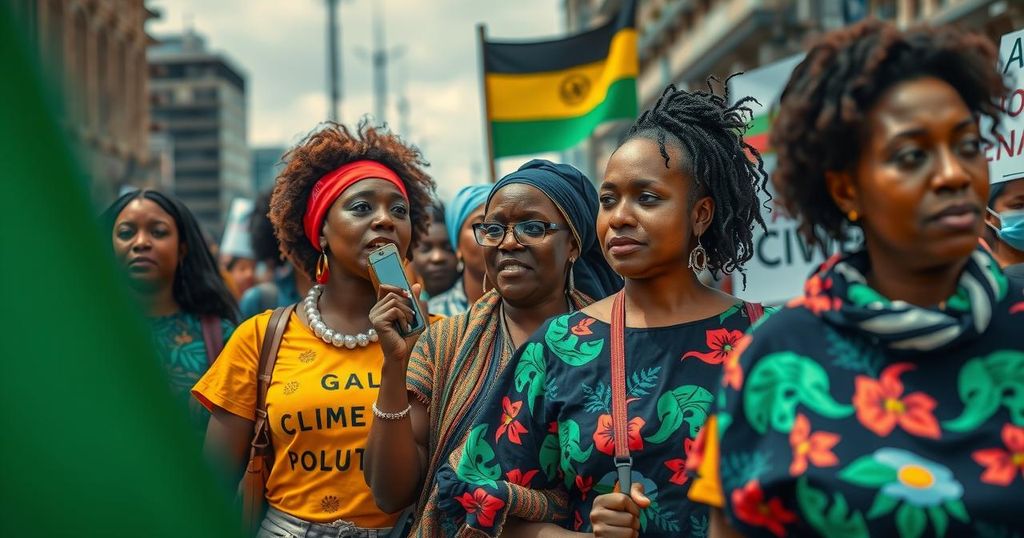Senegalese women marched in Dakar demanding climate justice and accountability from polluting countries ahead of COP29. Activists highlighted the need for compensation for the impacts of climate change in Africa, citing significant flooding and environmental degradation. Key participants called for adherence to international agreements to protect their resources and communities.
In a powerful demonstration for climate justice, approximately 50 Senegalese women activists congregated in Dakar to voice their demands ahead of the upcoming COP29. This march, held annually since 2021, aimed to compel nations predominantly responsible for greenhouse gas emissions to take significant action. Participants expressed their discontent with statements such as, “Down with capitalism! Down with polluting countries!”, while advocating for protection of Senegal’s resources and a transition to a decarbonized future. Cheikh Niange Faye, a former tour guide from the Thiès region, emphasized the urgent need for change, lamenting the lack of progress over the past four years: “It’s been four years that we’ve been marching, and nothing’s changed. They’re spending billions to do their conferences, but they owe us billions in compensation.” This sentiment reflects the frustrations of those in rural areas who have directly faced climate impacts, including significant flooding this year. The Sahel region, including Senegal, has experienced unprecedented flooding, displacing tens of thousands and damaging over 1,000 hectares of crops, underscoring the urgency of the activists’ demands. With Africa contributing a mere 3.8% of global emissions yet suffering disproportionately from the consequences, activists assert the moral responsibility of higher-emitting nations. Khady Camara, the primary organizer of the march, called for adherence to the Paris Agreement as a path toward accountability. Khady Faye, another significant activist representing the Saloum Delta, protested against the environmental devastation caused by the new Sangomar oil drilling project. She urged, “Think about the suffering of these communities, think about the suffering of these women. Try to leave our delta alone, try to leave the gas at Sangomar underground, to let the community live normally.” This highlights the critical intersection of climate justice and community well-being in Senegal.
The issue of climate justice has gained increased prominence as communities worldwide, especially in Africa, face the brunt of climate change effects while contributing minimally to global greenhouse gas emissions. The annual climate march in Dakar reflects the local women’s growing discontent with corporate and governmental inaction regarding climate commitments, especially in light of severe environmental challenges such as flooding and resource depletion. This situation compels a reevaluation of responsibilities among polluting nations, particularly as international climate conferences approach.
The march organized by Senegalese women underscores the urgent call for climate justice and accountability from the nations that significantly contribute to greenhouse gas emissions. As highlighted by the activists, the suffering experienced in Senegal must prompt a reevaluation of priorities among global leaders, emphasizing the need for compliance with international agreements such as the Paris Agreement. Only through collective and responsible actions can we hope to combat the ongoing climate crisis effectively.
Original Source: abcnews.go.com







